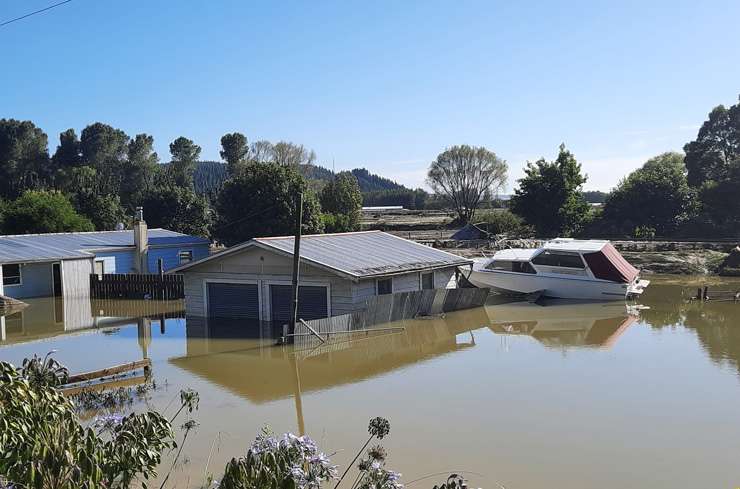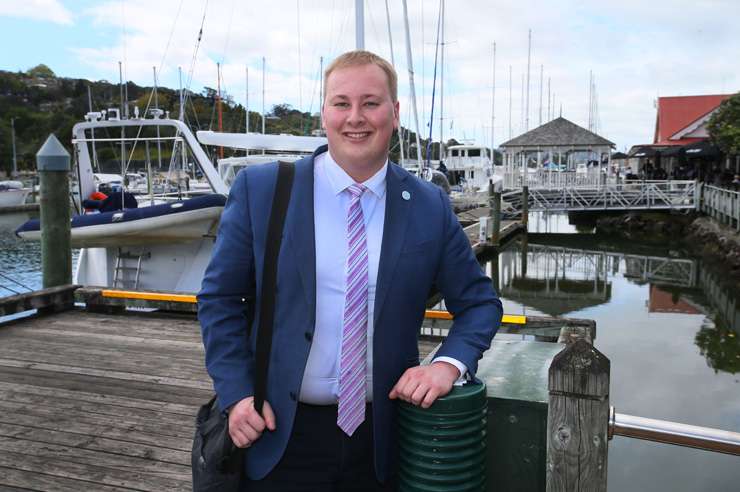A property management firm managing 200 properties in the storm-ravaged town of Wairoa is unsure how many of its properties have survived the carnage and is bracing itself for some tough conversations with both its tenants and landlords over the next few weeks.
It will be a depressingly similar situation for property owners in the rest of the Hawke’s Bay and Gisborne who may not be able to return their properties either in the short or long-term after Cyclone Gabrielle caused devastation to homes, businesses and roads.
Property Brokers general manager of property management David Faulkner, who is in Wairoa this week to support his team of property managers on the ground, said they will be ending tenancies because the properties cannot be lived in which will lead to an inevitable shortage in rental properties.
“We’ve got over 200 properties in Wairoa that we look after and I don’t know how many we’ve got left.”
Start your property search
He’s also aware of several rental properties on their books in Taradale in Napier that have been red stickered. Some of their Gisborne houses have sustained some damage, he said, but overall homes appear to have been relatively unscathed.
Read more:
- Underground landslide and looting turn designer’s dream villa into a nightmare
- Property damage: ‘If they try and hide it, they’re asking for trouble later on’
- Flood damage: What are your legal rights?
“It’s hard for us because we are going to be giving bad news to tenants and to landlords, but we are not social workers, we are not emergency housing providers.”
Prior to the storm, the rental agency did not have any surplus rental stock available so there would be an absolute shortage of homes in these areas, he said.
“It’s just going to be really, really tough.”
With no access to internet banking, tenants have been unable to pay rent so arrears are spiking and landlords are not getting the money to pay their mortgages.
To address the growing accommodation shortage properties currently for sale could end up being pulled off the market, he said, and added to the rental pool if people decide it may not be the best time to buy or sell especially if it is around a flood plain and the owners think they will get a good rental rate to cover the mortgage.
However, he added it would not be enough to address the huge shortage of homes that had undoubtedly been created by Cyclone Gabrielle.
That demand could also push rents up in the short-term, he said.
“What I think will happen if you look at the history of Christchurch you will see in the immediate future a sharp increase in rents and that’s purely supply and demand. It’s unfortunate you don’t want to see price gauging particularly with people in distress. You want to see fair market rent.”
However, if Christchurch’s experience was anything go by, he said, prices would eventually flatten out like they did there once the rebuild was well underway.
“Long-term they will build sufficient property and infrastructure to meet the demand and for the environments as well, but there’s going to be pain in the short-term. Quite a lot of pain.”

Half-submerged properties in Hawke's Bay. Photo / Neil Reid
He also urged the Government to adopt some lenience under the Residential Tenancies Act just to ensure people have roofs over their heads.
“This is a disaster and sometimes the rule book doesn’t apply – you've just got to adapt – and make sure people have got somewhere relatively safe where they can put their head down to rest.
“It’s going to take a long time to clean up these properties. Apparently, the shortage – I think they’ve just got fuel restored in Wairoa – but our tradespeople had run out of fuel. They couldn’t get to properties.”
Tremains general manager central regional Stuart Christensen, who is based in the Hawke’s Bay, said it is far too early to gauge what the real impact will be as the community is still pulling together trying to get businesses up and running again and help people where needed.
“It’s not the same, but the only parallel we have at the moment is what Christchurch went through off the back of that and what that looked like. As hard as it is, there will be people that need to find a new home and so there will be that market we haven’t had before.
“But look, it’s so raw, a lot of people that haven’t been able to go back to their homes are staying with family, people that have had their places on the market have put people in, rentals that have been vacant people have been in there which is awesome, but it’s so early to say really.”
Christensen said some pockets of Napier and Hastings and central Hawke’s Bay had escaped any damage so properties in those areas would likely stay on the market.

Infometrics CEO Brad Olsen: “People are going to be a lot more nervous about buying at the moment.” Photo / Tania White
“It’s going to be a slow rebuild, but there’s a market in every market so we will glean on whatever we can from people who have been through this before, obviously Christchurch, however it’s completely different.”
Infometrics principal economist and CEO Brad Olsen said in the short-term there would be a huge demand for houses – particularly rentals - given just how many properties had been destroyed.
“The short-term effect is likely, I think, to be seen mostly primarily in the rental market around that supply and demand element.
“In terms of property, people are going to be a lot more nervous about buying at the moment given they are not sure just how vulnerable the house they might be buying could be.”
Not only would homes be required for people who have been displaced, he said, but there would also be a large number of tradespeople and experts needing accommodation to help with the re-build similar to what happened in Christchurch.
“There’s still a lot of questions to be asked around how are we going to resource this – where are we going to find all of these dwellings and, importantly, how quickly might you be able to get some of those houses back online.”
While a number of properties have been destroyed, there could be others that might need significant internal work but the shell is ok, he said.
In the meantime, Olsen said a number of temporary dwellings could be set-up creating mini-temporary villages to address the accommodation shortage in the worst-hit areas.
- Cyclone Gabrielle: Click here to donate to the New Zealand disaster fund












































































